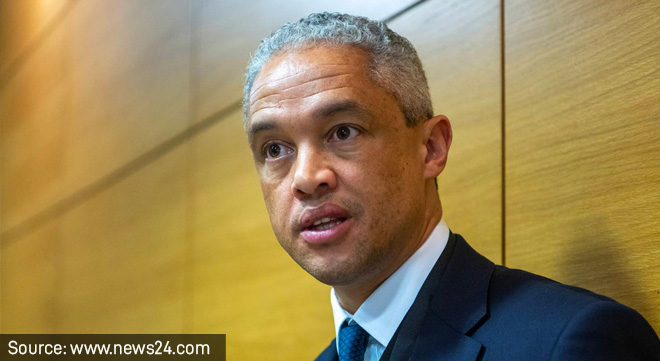Efforts are under way to strengthen the Budget process and enhance the efficiency of public spending, according to the Budget Overview released yesterday.
National Treasury Director-General Dr Duncan Pieterse (pictured) said major reforms to state spending and the Budget process are currently being considered. In his foreword, Pieterse wrote: “Public spending is inefficient. Previous spending reviews have identified tens of billions of rands in potential savings from poorly performing programmes that can be redirected in future Budgets. Concurrent reforms are being prepared to strengthen the Budget process as the foundation of sustainable public finances and to expand public participation.”
The Budget notes a planned R20-billion increase in tax revenue for 2026/27 to address persistent shortfalls. However, Treasury said this figure may be “reconsidered” if the South African Revenue Service recovers the equivalent amount through improved debt collection, or if the government achieves significant savings by implementing recommendations from spending reviews. This could reduce or eliminate the need for additional tax measures in the 2026 Budget.
Spending reviews, technical tools that support credible public expenditure, have identified tens of billions of rands in potential savings from inefficient or poorly performing programmes, which could be redirected in future Budgets.
The Budget Overview further states that changes to improve the Budget process will be phased in over time.
“These reforms will be designed to strengthen government and institutional commitment to fiscal sustainability, refine Budget prioritisation and the functioning of Budget structures, and improve data systems and capital budgeting, monitoring, and reporting.”
Since 2013, National Treasury and provincial treasuries have assessed more than R312bn in spending programmes, uncovering weaknesses in policy costing, implementation, and oversight that have led to duplication and waste. Previous reviews found that R37.5bn in savings could be achieved through changes to operating models and stronger oversight.
“In some cases, programmes no longer achieve their intended objectives and should be closed,” the Budget Overview notes.
It adds that to implement these recommendations for the 2026 medium-term expenditure framework (MTEF) period, the Budget process will be redesigned to phase out low-priority or underperforming programmes and improve efficiency in procurement, ICT, and infrastructure management.
The process will also incorporate reforms arising from the recent review of public employment and active labour market programmes, as discussed in the 2024 Medium-Term Budget Policy Statement (MTBPS).
“That review found that while the portfolio is comprehensive, the effectiveness and efficiency of individual programmes is mixed.”
Following a government-initiated review of conditional grants, National Treasury will implement reforms to improve how infrastructure programmes and projects are planned, procured, contracted, and executed in provinces and municipalities.
In addition, a new process has begun to identify ghost workers and other payroll irregularities.
According to the Budget Overview, “Previous initiatives to uncover ghost workers relied on an inefficient census methodology. The new data-driven approach will integrate multiple administrative datasets, more easily detecting anomalies across national and provincial departments. Updates will be provided in the 2025 MTBPS.”




